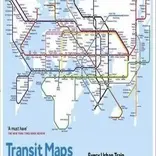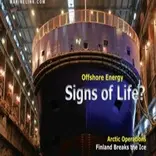|
Code:
12380
|
WMU holds forum at Almedalen Week ۲۰۱۴
TIN news: WMU-forumWMU arranged a forum on 30 June 2014, at the Maritime Forum Event, Maritim Mötesplats, entitled "Global Environmental and Safety Issues of Maritime Transport: Is There Any Progress?"
WMU Professor, Olof Lindén, opened the session with an introduction to WMU that included recent developments in maritime research such as the opportunities that e-navigation provides for monitoring of shipping activities and environmental management. He noted that despite significant improvements in the maritime world such as greatly diminished oil spills, many environmental management challenges remain including air pollution, hull fouling, invasive species, underwater noise, and ship strikes to marine mammals.
The issue of ship strikes was discussed further by WMU Research Assistant and PhD Candidate, Annukka Pekkarinen. It was emphasized that quick action is needed since certain endangered whale populations cannot withstand the additional mortality caused by increasing shipping activities in their feeding and breeding areas.
Plastic waste and oceans were the topic of focus for Carl-Gustav Lundin, Director of the Global Marine and Polar Programme for the International Union for Conservation of Nature (IUCN), who emphasized the importance of this rather recently revealed threat circulating in marine food chains. Further, Mattias Rust, Conservation Officer for the World Wildlife Fund (WWF), made a presentation about Particularly Sensitive Sea Areas (PSSAs) including Sweden's goal to increase protection of their PSSAs from 6.5 to 10 percent. Based on the increase in human activities that influence our oceans, the question arose if 10 percent is sufficient.
WMU Associate Professor, Yoshinobu Takei, addressed the issue of Arctic governance and how the Arctic Council and IMO are working together to ensure that increased shipping in the Arctic is safe and well managed. As topics for discussion he raised issues Sweden faces in terms of the potential conflicts of being an EU member state as well as an Arctic Council member state, and the controversial involvement of non-Arctic states in the governance of the marine Arctic.
The panel's concerns focused mainly on Sweden's PSSAs and the issue of microplastics due to their impact on Sweden's coastline and the individuals who populate it. Annicka Engblom (Moderata Samlingspartiet ) was particularly interested in Arctic cooperation and Sweden's role in the work of the Arctic Council. All panelists acknowledged that Sweden's economy is heavily dependent on shipping and that ensuring the future of Sweden's seafaring industry is relevant to all political parties. The panel was in further agreement that although ship strikes, arctic shipping, and marine littering from ships tend to take place far from the borders of Sweden, actions should be taken to diminish the negative impact of these issues
WMU Professor, Olof Lindén, opened the session with an introduction to WMU that included recent developments in maritime research such as the opportunities that e-navigation provides for monitoring of shipping activities and environmental management. He noted that despite significant improvements in the maritime world such as greatly diminished oil spills, many environmental management challenges remain including air pollution, hull fouling, invasive species, underwater noise, and ship strikes to marine mammals.
The issue of ship strikes was discussed further by WMU Research Assistant and PhD Candidate, Annukka Pekkarinen. It was emphasized that quick action is needed since certain endangered whale populations cannot withstand the additional mortality caused by increasing shipping activities in their feeding and breeding areas.
Plastic waste and oceans were the topic of focus for Carl-Gustav Lundin, Director of the Global Marine and Polar Programme for the International Union for Conservation of Nature (IUCN), who emphasized the importance of this rather recently revealed threat circulating in marine food chains. Further, Mattias Rust, Conservation Officer for the World Wildlife Fund (WWF), made a presentation about Particularly Sensitive Sea Areas (PSSAs) including Sweden's goal to increase protection of their PSSAs from 6.5 to 10 percent. Based on the increase in human activities that influence our oceans, the question arose if 10 percent is sufficient.
WMU Associate Professor, Yoshinobu Takei, addressed the issue of Arctic governance and how the Arctic Council and IMO are working together to ensure that increased shipping in the Arctic is safe and well managed. As topics for discussion he raised issues Sweden faces in terms of the potential conflicts of being an EU member state as well as an Arctic Council member state, and the controversial involvement of non-Arctic states in the governance of the marine Arctic.
The panel's concerns focused mainly on Sweden's PSSAs and the issue of microplastics due to their impact on Sweden's coastline and the individuals who populate it. Annicka Engblom (Moderata Samlingspartiet ) was particularly interested in Arctic cooperation and Sweden's role in the work of the Arctic Council. All panelists acknowledged that Sweden's economy is heavily dependent on shipping and that ensuring the future of Sweden's seafaring industry is relevant to all political parties. The panel was in further agreement that although ship strikes, arctic shipping, and marine littering from ships tend to take place far from the borders of Sweden, actions should be taken to diminish the negative impact of these issues















![AIRBUS A380 [MORE THAN 600 PASSENGER’S CAPACITY PLANE]](https://cdn.tinn.ir/thumbnail/4jCp4EQvCU0b/IjHVrSYQrIAqIzXuTzADR7qLYX4idQT4nfq__26E5SCUPLMqfhWkWajvuO9Wfq1ql1TjV4dhkrHliNQU82kMpo2NNftT_NGEwHc9KXtN_rk731bmifa2IQ,,/airbus-a380-structure1.jpg)

Send Comment